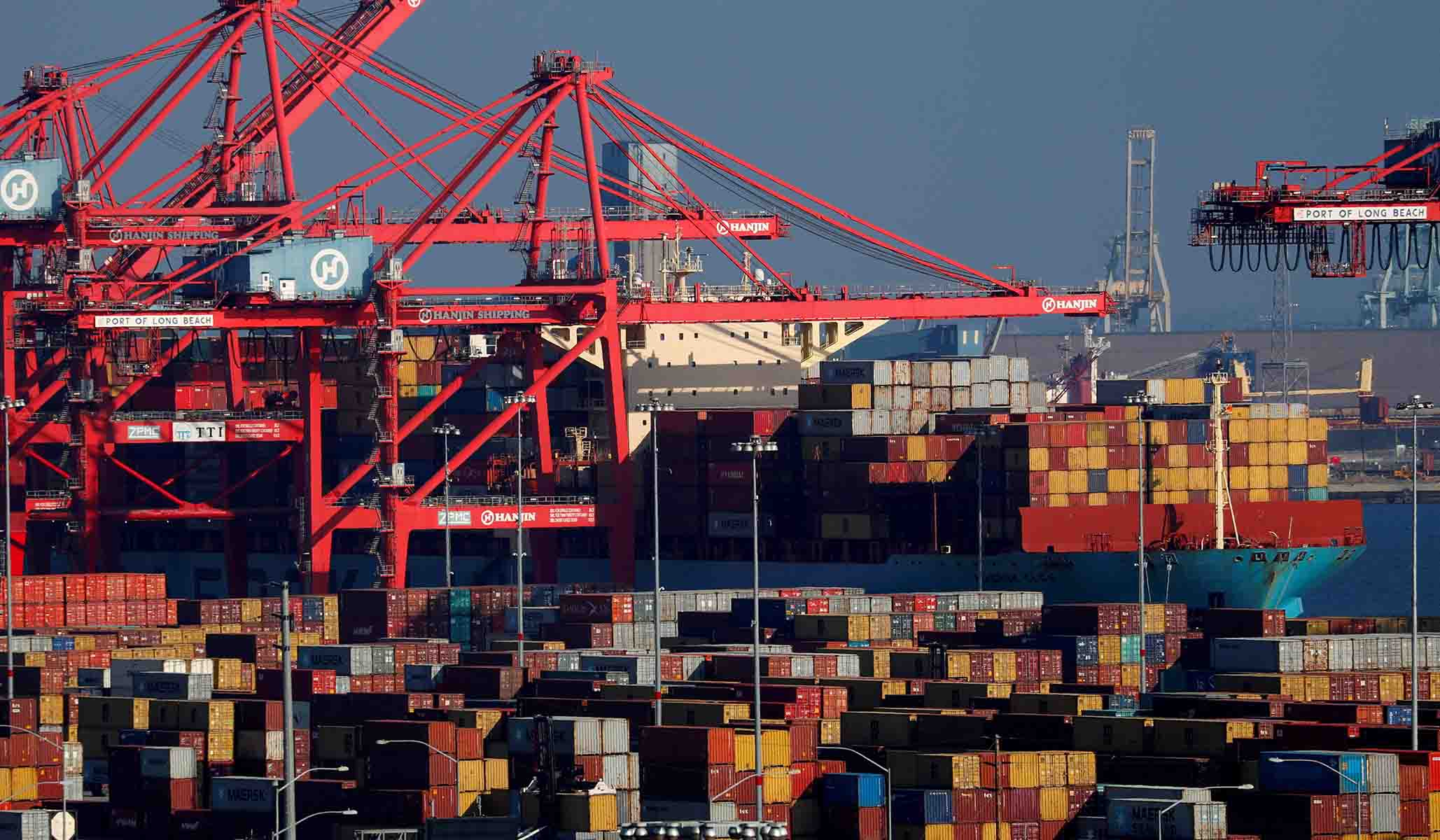


Scott Lincicome’s Dispatch newsletter yesterday was all about the labor struggles at West Coast ports. The International Longshore and Warehouse Union’s shenanigans are hardly new:
Other recent “work actions” — a euphemism for “not striking but not working in good faith either” — have also occurred, and with increasing regularity. The Journal of Commerce, for example, reported this week that ILWU dockworkers are now targeting the small handful of Los Angeles/Long Beach port terminals that are semiautomated, “red-tagging” cargo-handling equipment there (which deems it unsafe and forces an inspection) and thus further bogging things down. This, as the industry mag FreightWaves humorously explained last week, is par for the course and signals more strife in the weeks ahead: “Labor action at West Coast ports does not have a history of being explicitly confirmed; rather, it takes the form of passive-aggressive behavior that escalates with increasingly implausible deniability.”
As we’ve discussed repeatedly, labor disputes at U.S. ports occur somewhat regularly (basically every five years or so when the current contract is up), especially out West, and have recently centered on the issue of automation: Port operators and ocean carriers want to use robots, autonomous vehicles, drones, and other cool tech to boost container processing efficiency (“throughput”), while port unions strongly oppose this “job-killing” modernization. And, because the ILWU represents basically all dockworkers on the entire U.S. West Coast (22,000 of them at last count), because those ports are so critical to U.S. trade (especially imports from and exports to Asia), and because both labor law and California politics heavily favor the union, the ILWU been extremely successful in blocking technology that’s widely used around the world (even in places like Europe with strong labor unions).
“The ILWU can cheer these ‘victories,’ but the rest of us shouldn’t,” Lincicome writes. There’s hardly a better example of concentrated benefits and dispersed costs than the prevention of port automation. The ports of Los Angeles and Long Beach are the least efficient in the world, adding costs to every final good and input to production that travels through them, which are then borne by consumers and firms across the country, all so one union can wield outsize political power and still fail at its stated goal, preventing job loss.
Lincicome points out that automation could actually help the ports add jobs. Experience has shown that the two partially automated terminals at Los Angeles/Long Beach are much more productive than the non-automated ones and consequently provide more job opportunities for ILWU members.
The Port of Long Beach markets itself as “the port of choice.” It doesn’t seem wise to emphasize choice at a time when many shippers are choosing to send their cargo elsewhere. The West Coast ports’ declining market share, as many shippers opt for more-efficient East Coast and Gulf Coast ports, doesn’t help West Coast dockworkers either.
But the ILWU isn’t the only union that might not have workers’ best interests in mind. Where is the outrage from, for example, autoworker unions?
The Port of Los Angeles is a major port of entry for auto parts. A strike would cause major problems for auto supply chains. We saw the consequences of disrupting international trade for autoworkers in February 2022, when protesters blocked the Ambassador Bridge connecting Detroit and Windsor, Ontario. Parts were stranded on the wrong side of the bridge, and multiple car factories had to cut shifts in response.
It’s general practice for unions to never speak out against another union’s work actions, in the name of “solidarity.” But autoworkers who could get their hours cut due to lack of parts during a port strike probably wouldn’t be feeling warm and fuzzy about their “brothers” on the West Coast. If their unions actually cared about autoworkers, instead of political organizing, they might speak up against a potential port strike, outlining the harm it would cause to their members.
The same could be said of the Teamsters, who represent 350,000 workers at UPS, a company whose operations would be disrupted by a port strike. Why don’t the ILWU dockworkers have to show a little solidarity with their “brothers” at UPS and not make their jobs harder by destabilizing the busiest port complex in the country? Plenty of UPS drivers and warehouse workers would be better off if Los Angeles and Long Beach were as efficient as world-leading ports rather than languishing behind the port of Luanda, Angola, in global rankings. (Instead, the Teamsters are agitating about their own strike.)
Non-union truck drivers who work around the ports support automation. Many of them are independent contractors paid per delivery, so more efficiency at the port means quicker turnaround times, more deliveries, and more money in their pockets. Some dockworkers sympathized with the truckers protesting California’s A.B. 5 labor law last year, which led the ILWU to clarify that it supports the law (as do the Teamsters). Truck drivers have been adversely affected by the work actions of the past few weeks as well, with major delays and long lines.
The parochial interests of unions often work at cross purposes with what would actually help most workers. Most workers in the U.S. (94 percent of them in the private sector) seem to understand that and aren’t union members. While the ILWU fights to hold its political clout in California, workers across the country are made worse off every day by inefficient ports, and a strike could cause a short-term crisis with headaches for many and reduced hours for some.
Workers of the world . . . yeah, right.
